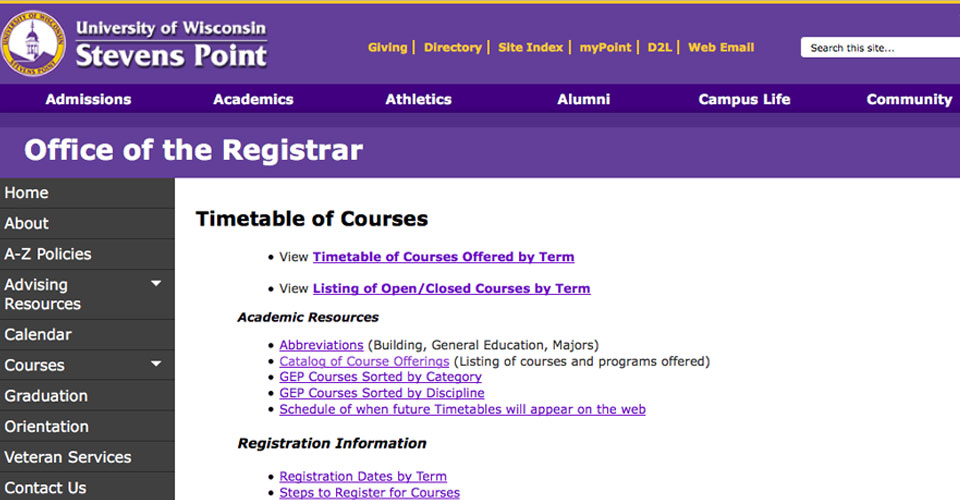


For many students, now is perfect time to start looking into classes for next semester. Spring Break is almost here and that always means time to plan for next year. Planning for next semester doesn’t need to be stressful. My biggest tip for this is to utilize all the resources that you have available to you on campus.
For students planning out their next semester in business, I always recommend reading your Degree Progress Report first. This will tell you everything you need to plan your next semester on campus, as well as assist you in building out a tentative graduation plan for semesters to come. The next common sense resource that students should always know how to find is the timetable. The timetable is listed after a few weeks into the semester, and it helps to build out a full-fledged schedule so you can fit all of your classes together. An even easier way for our students to track their progress is through our major checklists.
For everyone who has already seen these pieces of scheduling gold, and utilized them, then you have only discovered the tip of the iceberg. There is so much more to add to your bag of tricks.
One of the things that I do on a monthly, even weekly, basis is talk with the other advisers on campus. This is by far one of the best things I do on campus because I gain so much information from our advising team from other areas. I also create the ability to send students to these people whenever unlikely or uncommon situations happen.
So, since advising is so much more than picking out classes, I’ve compiled series of links for you in case you ever need them.
- Dropping a Class: Depends on the semester, but you will need your adviser signature and professor signature, and sometimes the deans approval if you plan to drop a class after the deadline.
- Taking more than 17 credits?? You’ll need a credit overload form for that!
- Wondering how to do something on campus? Just ask someone. Rebecca Sommer in the School of Health Care Professions put together a great How To FAQ on advising, but not all departments are that advanced, so you sometimes just need to ask.
- Adding Email to your Phone: This isn’t really about advising, but you should have you school email on your phone the day you step foot on campus. When in doubt … call IT!
- A campus map always helps.
- Want to know if your class will transfer to UW-Stevens Point or to another school. Use the Credit Transfer Wizard.
- Follow your college or school on social media. We post events and updates that many students take advantage of for professional development and continuous learning.
- Need any other form? You can probably find it here.
- Do your research. Here is a list of UWSP policies and procedures.
- Lastly, know the calendar. Dates are entered at the beginning of the semester, and they stay the same all semester. This will help you to stay ahead of the game.
The more you know, the easier it is to navigate. The best part of being a student at our campus at UW-Stevens Point is the amazing resources that we have available at our fingertips. Use them as much as you can, and best of luck with advising this spring!
– Max T –
Max Trzebiatowski ’13 is the advising director in the UW-Stevens Point School of Business and Economics. He can be contacted at 715-346-2695, mtrzebia@uwsp.edu or in CPS 100.
